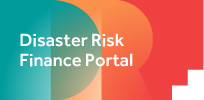Whilst the rest of the world dealt with second rounds of lockdowns and social distancing restrictions remained in place, in early December of 2020, the streets of Port Vila, Vanuatu seemed to be a world apart. Teeming with green, black, and red—the national colors, the streets of the capital of the Western South Pacific nation of approximately 300,000 people brimmed with national pride marking the country’s graduation from Least Developed Country (LDC) Status. The nation was first recognized as an LDC in 1985, and was recommended for graduation due to meeting the threshold requirement for two of the three UN criterion used, (Gross national income (GNI) per capita, and Human assets index (HAI)) in 2012.
Where to from Graduation:
The impact of graduation from LDC status would be relatively limited as it would result in a loss of access to preferential trade agreements on the nation’s exports which are limited outside of services like tourism. Specifically, graduation will affect tariffs on only exports of kava to China, beef to Japan and Noni juice to China (UNOHRLLS, 2020). These tariffs will have minimal effect on the nation’s total export revenues as Vanuatu’s primary export markets are United States, accounting for 19.1% of the total, followed by Fiji (14.5%) and Kiribati (13.6%) (Ibid). Similarly, on the front of Official Development Assistance, graduation will have no impact on the aid Vanuatu receives as its bilateral donors have other criteria outside of LDC status for aid provision such as vulnerability to climate change and disasters, income levels and infrastructure development levels (Ibid).
Though living standards and human capital have improved across the predominantly rural archipelagic nation of over 80 islands since its induction into the LDC category, Vanuatu remains extremely vulnerable due to high exposure to disasters and low coping capacity. Ranked as the most hazardous country in the world by the World Risk Index, within the next 50 years Vanuatu has a 50% chance of experiencing a loss due to cyclones, earthquakes, or tsunamis valued at more than 45% of GDP, and a 10% chance of a loss exceeding 74% of GDP (PCRAFI, 2011). In March of 2015, Category 5 Cyclone Pam did just that—with damages nearing 64% of GDP, the nation was slammed with grave economic and social fallout, spurring graduation to be further extended until 2020.
The country’s prosperous growth is perpetually at risk of being stagnated and even reversed by costly external shocks that are beyond their control, like Cyclone Pam, or 2020’s Cyclone Harold. With an average of two to three natural disasters per year, in a context of increasing frequency and intensity due to climate change, Vanuatu’s development progress sits on the precipice of exogenous shocks.
While graduation and loss of LDC status affects the nation very little economically in terms of aid and trade, it begs the pertinent question, what lies ahead for SIDS like Vanuatu (and in three years, Solomon Islands)? How can recently graduated SIDS like Vanuatu achieve the next stage of development when their small economic base is extremely vulnerable to natural hazards and other exogenous shocks? When the HAI and GNI per capita of the country, the means on which all SIDS like Vanuatu graduate on, are consistently stagnated or even decreased by consistent external shocks, there is a need to reevaluate how SIDS with limited resources and high levels of disaster risk are treated when it comes to development support. Vulnerability of development progress for SIDS is very high due to factors largely outside of their GDP which is what is currently used for measuring a nation’s ability to cope with disasters.
Erosion of Human Assets
Natural disasters threaten the development of human assets via threatening food and economic security primarily. Nations that are repeatedly exposed to cyclones undergo a cumulative and effectively permanent loss to GDP, with the damage from a single cyclone lasting at minimum twenty years (UNUEHS, 2020). On a micro level, this damage to GDP weighs the heaviest on Vanuatu’s agricultural sector which makes up 25 percent of GDP and is predominantly composed of crop production at 79 percent of the sector production (Ibid). While tourism and international services make up the largest share of GDP earnings, over 80 percent of Vanuatu’s population relies on agriculture (mainly crops, livestock, and fisheries) for livelihoods and for food and nutrition security, and at least 71% of the rural population derives some income from agricultural activities (VNSO, 2013; Government of Vanuatu, 2015).
Thus, when cyclones rip through the nation, which they are predicted to do on average about 2.4 times per year, mainly between November and April (Australian Bureau of Meteorology and CSIRO, 2014), they not only destabilize the economy but destabilize the ability of the majority rural population to survive. This is because more than half of the 85 percent of households engaged in subsistence farming have no other source of
income (REACH, 2015). The crops and fruit trees lost can take up to a year and a half to replant and bear fruit, and in the case of kava crops, which make up 53 percent of the nations’ commodities exports, it can take potentially three to five years (Government of Vanuatu, 2015b). While kava can be planted and harvested throughout the year once the plant has matured, its destruction via cyclones leads to issues of social and economic insecurity. For remote communities, many of which lack access to monetary income, cyclones represent a catapult into significant food insecurity leading to increased health and economic problems (Handmer & Nalau, 2019). Ultimately, cyclones destabilize the principal means of making ends meet for the majority of the nation, leading to a butterfly effect on the totality of human assets development in Vanuatu.
Increased Poverty and Inequality
Creating increased inequality via destruction of education and economic opportunities, natural disasters erode human assets. Many households use their income from kava production to pay their children’s school fees (Yoshida, 2015), therefore its loss and or reduction directly impacts social and economic mobility of Ni-Vanuatu. Firstly, post disasters, children are more likely to withdraw from school to support their family through agricultural or domestic work because of reduced household income to pay for school fees (Government of Vanuatu, 2015). This is more likely to affect girls than boys due to entrenched gender roles on domestic responsibilities, and as a result increases gender inequality which in turn retards the nation’s economic growth and lowers the average quality of human capital (Klasen, 2000).
In addition to disruption of education opportunities, youth and the population as a whole are adversely affected due to a shortage of employment opportunities which is in large part due to the damaging effects of natural disaster (UNUEHS, 2020). MSMEs in the agriculture sector in particular bear the brunt of natural disaster and climate change risk which creates crediting risk inhibiting them from borrowing (Reserve Bank of Vanuatu, 2016b). Thus, in the wake of each new disaster, the amount of Ni-Vanuatu businesses able to reopen their doors is less and less, creating protracted unemployment for many.
For all the aforementioned reasons, disaster vulnerability compounded by increasing climate change widens inequality in SIDS like Vanuatu. As poor people often live on “low value land” where they are more exposed to hazards like storm surges and high intensity winds, disaster decreases their quality of life drastically. With fewer assets to fall back on, poor people are forced to adopt coping tactics that have protracted negative impacts such as taking children out of school, selling livestock, and reducing food intake (UNUEHS, 2020). Ultimately, disasters are not just temporary setbacks for the nation’s poor people, but forces that can alter the trajectory of their lives and ultimately the trajectory of Vanuatu’s socioeconomic development.
Progress Against the Odds
In spite of all these challenges, Vanuatu has been able to move their development progress forward to graduation—an accomplishment that must be recognized, applauded and supported. However, the international community must work to ensure their progress persists. For Vanuatu to retain and gain socioeconomic development in the face of increasing natural hazards concerted efforts must be made to bolster the nation’s resilience. Of paramount importance for both the Ni-Vanuatu government and international community is bolstering housing, local, and food infrastructure to ensure human development does not face retrenchment with each disaster. Via ensuring houses, schools, and medical facilities are disaster resilient, ni-Vanuatu will no longer have to choose between things like education and survival. On the front of food security, efforts should be made to invest in more hardy subsistence crops, as well as making subsistence gardens as storm resistant as possible. At a local level this looks like teaching best practices on food storage and disaster preparedness during a storm.
While international support for graduating nations is extended for 6 years after graduation, there is no formal “SIDS treatment” available to nations like Vanuatu. In light of that, the ni-Vanuatu government alongside development partners like the ADB, Australia and the World Bank, have put in place a myriad of long-term projects designed to address resilience in both physical and economic infrastructure. To complement these efforts, SIDS like Vanuatu should implement policies to progress domestic production. Given that their import of goods and services comprised nearly 47 percent of GDP in 2020 (World Bank, 2021), policies should be geared towards growing domestic enterprises, creating a more resilient and expansive job market that is not as easily hindered by exogenous shocks. One way to do this is via increasing backwards linkages, i.e., increasing the amount of resources sourced from rural areas in their manufactured exports as well as services exports.
Furthermore, the government of Vanuatu in tandem with its main development partners of Australia, New Zealand, United Kingdom, and France should work in creating a more inclusive economy which would entail lowering the barriers to entry by easing access to capital and credit as well as more accessible education. This can be done via improved skills training and increasing education opportunities, reducing the cost of doing business in the country via improving physical and digital infrastructure alongside reducing the time it takes to register a business. A more inclusive formal economy and increased coverage of social safety nets will help to ensure citizens’ livelihoods aren’t completely devastated by exogenous shocks like disasters and pandemics.
On a macro level, the government must address the systemic barriers hindering the growth of their economy which includes the time and procedures required to start a business, difficulty of dealing with construction permits, across border trade, and the enforcement of contracts. On these four categories Vanuatu’s rank ranges from 137-163 out of 190 nations with 1 being the best score (World Bank, 2021). In increasing concerted efforts to ease these integral processes to job creation and business growth, Vanuatu can better address the economic threat posed by disasters via broadening their economy.
While Vanuatu has surmounted great challenges thus far it is paramount that the nation’s government and international community make concerted efforts to ensure this progress is maintained and gained upon. LDC graduation is but the first step in the bright future of Vanuatu, to make sure the country and those like it continue to see tangible and improved socioeconomic development more must be done to reduce the harm and costs posed by natural disasters and other exogenous shocks.

